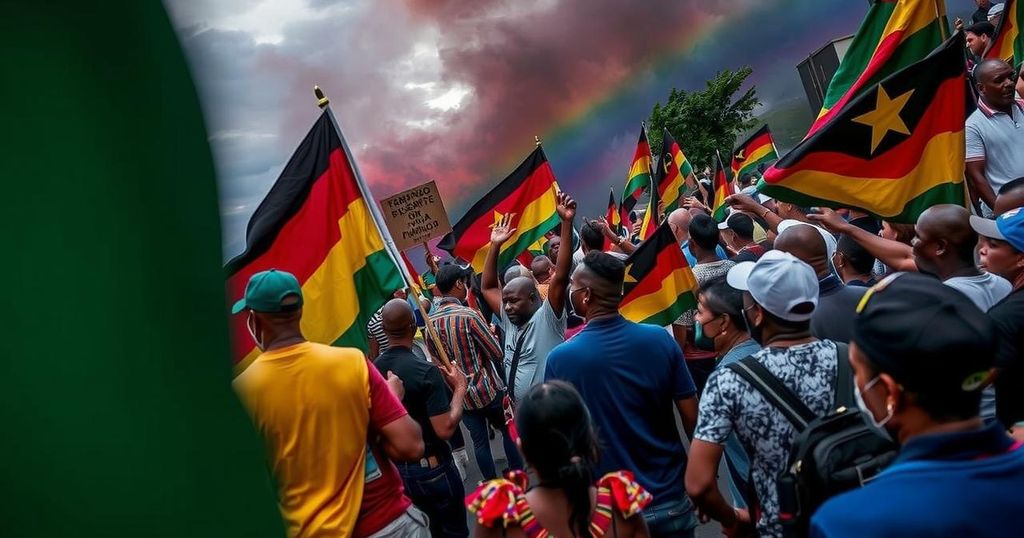Escalating Violence in Mozambique: Opposition Figures Assassinated Amidst Electoral Tensions

Mozambique’s political tensions escalated following the murder of an opposition lawyer and party official, amid protests against disputed election results favoring Frelimo. Allegations of election irregularities have been widespread, leading to fears of violent confrontations as the Podemos party prepares for nationwide strikes.
On Saturday, Mozambique witnessed a tragic escalation in political violence as armed assailants murdered an opposition lawyer, Elvino Dias, and a party representative, Paulo Guambe, while they were traveling by car in the Bairro da Coop area of Maputo. This grim event has heightened the atmosphere of tension and unrest in the lead-up to nationwide protests set to commence on Monday. The protests are being organized by the Podemos party, led by presidential candidate Venâncio Mondlane, to contest the provisional election results favoring Frelimo—a party in power for over fifty years. The attack has drawn widespread condemnation from civil rights organizations, including the Mozambican civil society election observer group More Integrity, which detailed the violent nature of the incident. Adriano Nuvunga, director of Mozambique’s Center for Democracy and Human Rights (CDD), remarked on the nature of the killings, stating, “They were brutally assassinated [in a] cold-blooded murder. The indications [are] that around 10 to 15 bullets were shot, and they died instantly.” This sentiment was echoed by Human Rights Watch, which also acknowledged the atrocity. Provisional results from the recent election indicate that Frelimo maintains a significant lead across all provinces, with its candidate, Daniel Chapo, likely to secure victory on October 9th. However, the elections have been marred by allegations of vote-buying, voter intimidation, and discrepancies in voter registration that have raised serious questions about their integrity. External observers have criticized these developments, asserting that they reflect ongoing issues that have plagued Mozambican democracy since Frelimo’s ascent to power post-civil war in 1994. Full election results are expected to be announced on October 24th, yet apprehension persists regarding the potential for violence during the imminent protests, reminiscent of past incidents where security forces intervened violently against protestors.
The political landscape in Mozambique has been fraught with tension, particularly with respect to election integrity and civil liberties. Frelimo, the ruling party since Mozambique’s independence, has faced persistent accusations of manipulating election processes, including allegations of vote-buying and intimidation of opposition voters. The rise of Podemos as a significant opposition force highlights the growing dissent against Frelimo’s long-standing rule. As the nation moves toward the upcoming protests, the backdrop of political violence serves to underscore the precarious nature of democratic engagement in Mozambique.
The assassination of prominent opposition figures in Mozambique marks a troubling escalation of political violence amidst a highly contested electoral process. As the Podemos party prepares to mobilize for protests against disputed election results, the threat of further violence looms large. This tragic incident illustrates the challenges facing Mozambique’s democracy, particularly the need for transparency and accountability in electoral practices. The international community will undoubtedly be watching closely as the situation unfolds in the coming days.
Original Source: www.theguardian.com






